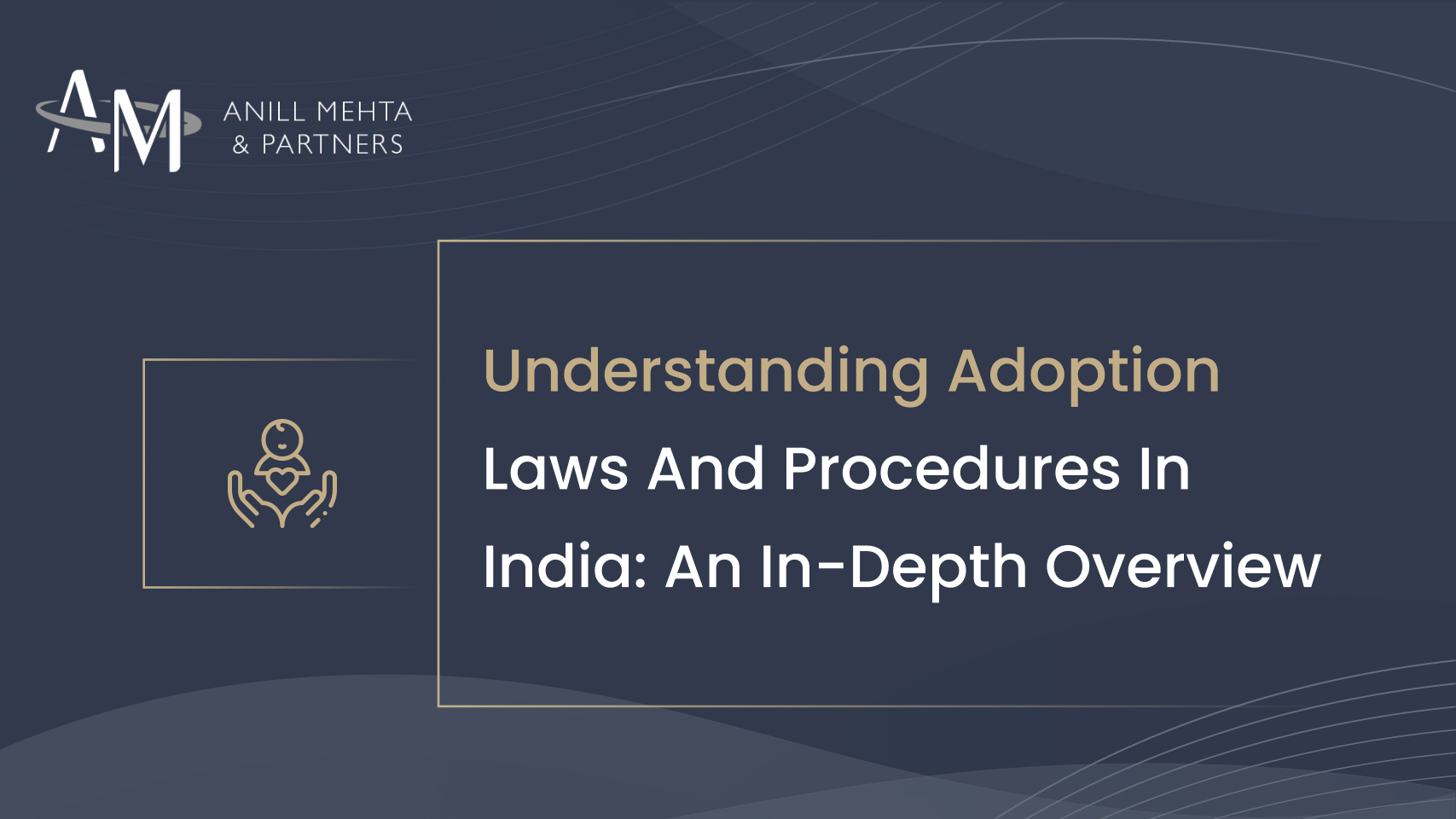
Understanding Adoption Laws and Procedures in India: An In-depth Overview
If you are someone wanting to adopt a child, is it a matter of priority for you to first have a deeper understanding of what adoption is and how the adoption process initially works? Generally speaking, in India, almost 50,000 parents want to adopt a child, but due to lack of knowledge and experience, they are left behind.
So, it has become a matter of priority to understand the detailed and comprehensive adoption guidelines. This blog will break down the basics of legal adoption procedure in India in simple terms.
Let’s dive into the blog to learn more.
Table of Contents
What do you mean by adoption?
Adoption is the procedure in which a person assumes parental responsibility for a child who is not biologically his/her own. Basically, we can say that adoption is the legal process through which a child who is adopted becomes a permanent member of the family.
What are the types of adoption?
Before understanding the adoption procedure in India, let’s first have a glimpse of the types of adoption:
- Sponsorship: When we talk about financial support only in adoption, we must say it is provided to the child, from education to upbringing, without granting legal parent rights.
- Guardianship: In this case, legal guardianship can be granted to ensure a child’s welfare, but it doesn’t provide complete parental rights.
What are the key adoption laws in India?
Adoption in India is governed by two primary laws that are mentioned below:
- The Hindu Adoption and Maintenance Act, 1956 (HAMA):This adoption law in India applies to Hindus, Buddhists, Jains, and Sikhs. Under HAMA, a couple or single person can adopt a child. The adoptive parents must be capable of providing for the child's welfare.
- The Juvenile Justice (Care and Protection of Children) Act, 2015 (JJ Act): This law is more inclusive and applies to all citizens, regardless of their religion. It is the primary law for adoption in India today and includes provisions for inter-country adoption as well.
Who can be adopted by these laws?
Here’s a brief synopsis of who can be adopted under the Adoption Act in India:
- As per Hindu law, the child must be a Hindu, and have not been adopted earlier. Also, he/she must not exceed the age of 15 years, and the child should be unmarried.
- As per the JJ Act, the child may not be Hindu. A child must not be more than 18 years of age and be an abandoned or orphan child.
What is the process of adoption?
The adoption procedure in India involves several steps, aimed at ensuring the best possible interests of the child:
Documentation and Registration
After fulfilling the eligibility criteria and completing counseling, parents who are considering an adoption need to collect and submit several essential documents, including:
- Application form: Fill out the application form, ensure to fill out accurate and complete information, and complete it by signing.
- Proof of identity and address: For proof of identity, adhaar card, passport, and other government documents can be submitted.
- Marriage certificate: This is only for married couples.
- Income proofs: Salary payslips, income tax returns, or other financial documents can be used as proof of income.
- Medical certificate: To analyze medical history, and certify good physical and mental health.
- No objection certificate: From employers only (if applicable).
- Police verification: It is mandatory to confirm the criminal background of the aspiring parents and ensure legal adoption in India.
Adoption Process
- Registration: The parents who are considering adoption must register themselves with a recognized authority, such as a recognized Indian Placement Agency (RIPA) or special adoption agency.
- Home study: A home study is conducted by any of the social workers to check the strengths and weaknesses of potential parents.
- Referral of child: Child’s permission is required, once accepted, it is informed to the adoptive parents.
- Acceptance: After agreement and acceptance of the child, adoptive parents sign documents indicating acceptance.
- Petition filing: A lawyer is hired to prepare a petition that is to be filed by the adoptive parent. After visiting the court, sign the petition.
- Foster care: The child is taken to pre-adoption centers, by adoptive parents to get a better understanding of the child’s characteristics and hobbies.
- Court hearing: Adoptive parents have to attend the hearing from the court whenever the judge asks them to do so.
- Court orders: After successfully completing all the steps, the judge issues adoption orders.
The parents should fulfill the following requirements for adoption procedures in India:
- Indian citizen, NRI, and foreign citizen procedures for these three are different.
- Any prospective adoptive parents, irrespective of their marital status and whether or not they are biological children, can adopt a child subject to the following:
- Age criteria: In India, the age of the adoptive parent and child plays a critical role.
- Income criteria: Adoptive parents must meet the financial requirements for the adoption process.
Conclusion
Adopting a child in India requires thorough understanding and following the legal procedure meticulously. With the above guidelines and information, prospective parents can approach the adoption process with greater confidence and clarity.
FAQs
It can take up to six months in India to initiate the adoption process.
Indian citizen, NRI, and foreign citizen procedures for these three are different. Any prospective adoptive parents, irrespective of their marital status and whether or not they are biological children, can adopt a child.
Yes, but under certain circumstances that need to be fulfilled.